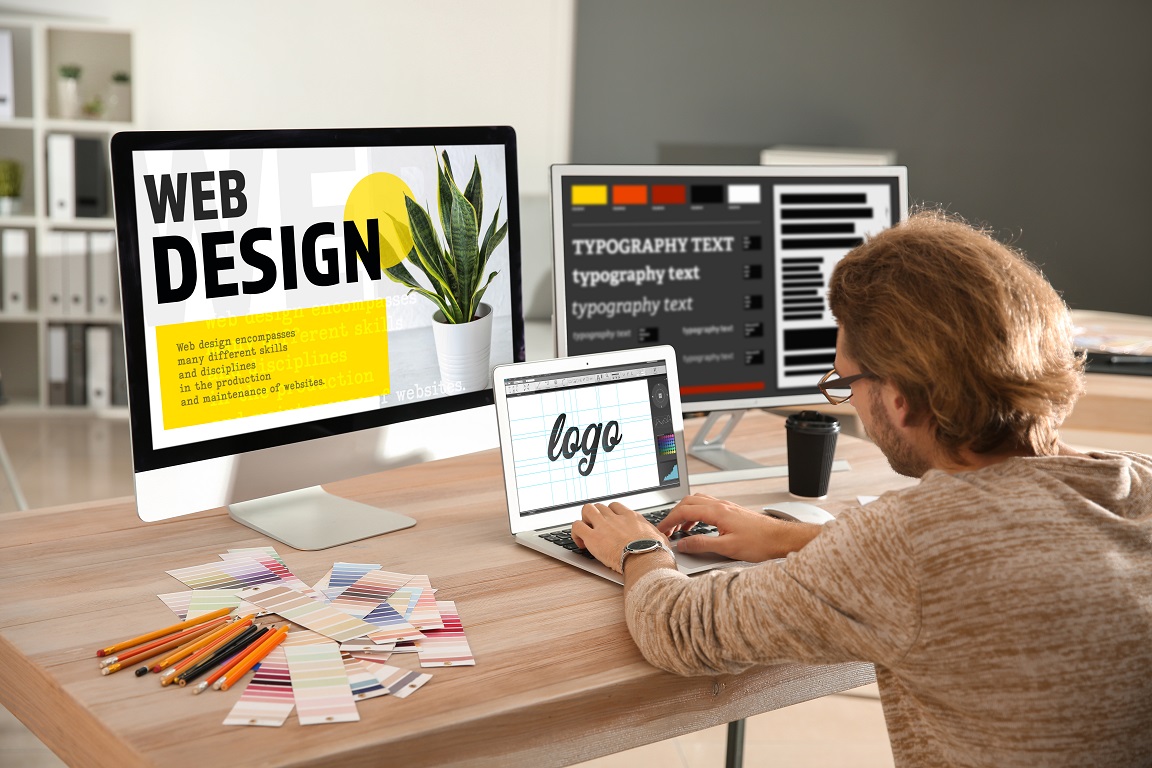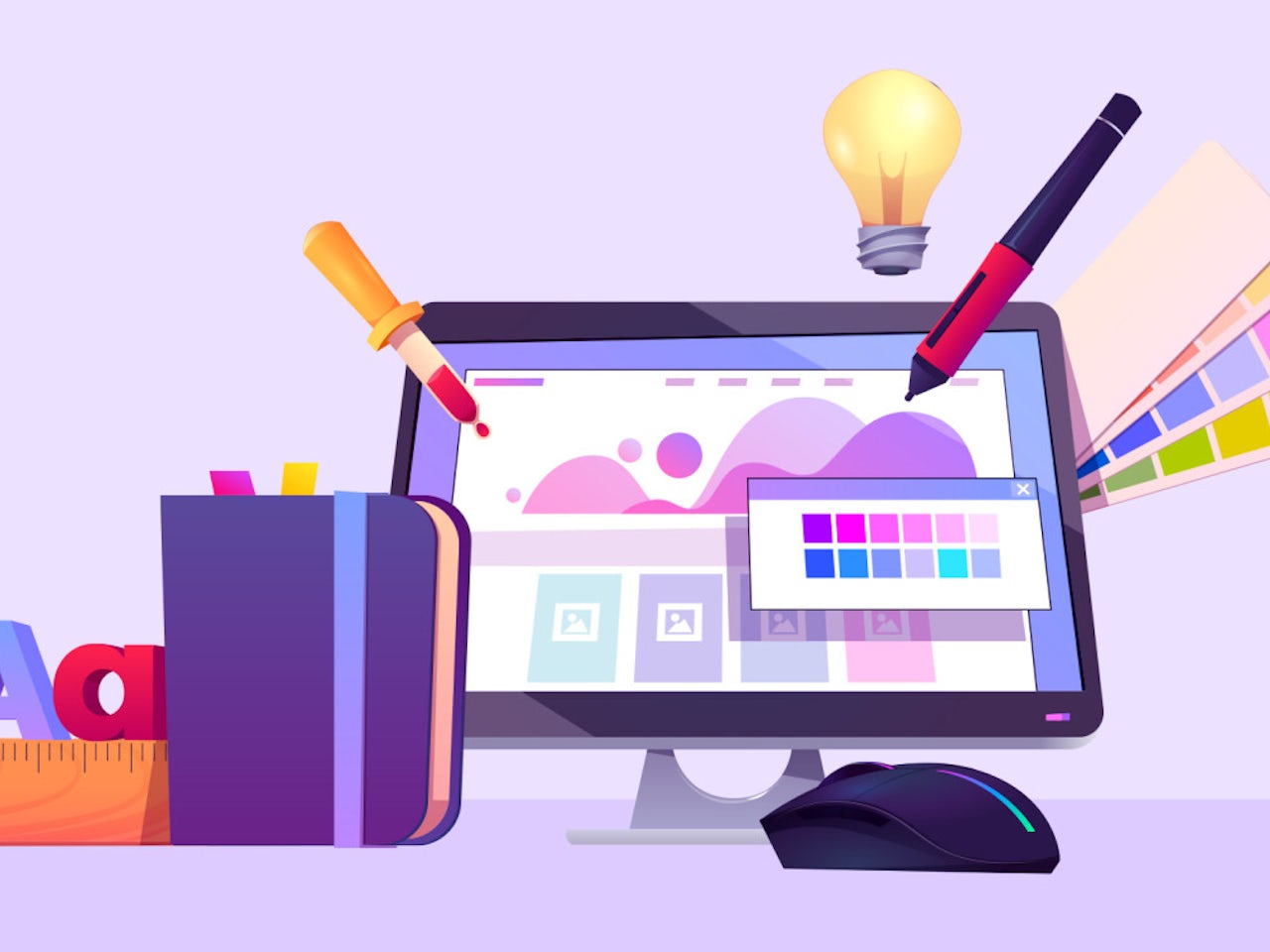Stick out in the Digital Globe with Tailored Website Design Services
Stick out in the Digital Globe with Tailored Website Design Services
Blog Article
Maximize User Experience With Innovative Website Style Solutions
In today's digital landscape, making best use of customer experience through cutting-edge internet site design solutions is imperative for businesses looking for to involve their audience successfully. By embracing user-centric style concepts, companies can develop interfaces that not just fulfill individual requirements but additionally improve overall complete satisfaction. Trick elements such as receptive layouts, intuitive navigation, and reliable aesthetic hierarchy play a vital function in this process. The assimilation of interactive elements can additionally boost the individual trip, motivating a reevaluation of traditional design techniques. When we consider the progressing expectations of customers?, what strategies might emerge.
Understanding User-Centric Layout

To implement user-centric design successfully, it is necessary to conduct thorough research study, including user meetings, surveys, and functionality screening. These research methods give beneficial information that informs layout decisions, guaranteeing that the final item lines up with user assumptions. Furthermore, creating customer identities can help developers envision and empathize with the end-users, leading the style procedure toward much more appropriate solutions.
Additionally, iterative layout is a key part of user-centric approaches. By continually testing and refining styles based upon user feedback, developers can recognize pain factors and locations of enhancement, leading to a much more polished end product. Inevitably, user-centric layout is not just a phase in the development procedure yet a continual commitment to prioritizing customer needs, causing more efficient and appealing electronic experiences.
Value of Responsive Layouts
As electronic interactions increasingly take place throughout a selection of gadgets, the significance of receptive layouts can not be overstated. A responsive format guarantees that an internet site adjusts seamlessly to different screen dimensions, from desktop screens to mobile phones. This versatility is critical in today's multi-device landscape, where customers anticipate a consistent and interesting experience no matter of exactly how they access web content.
The main benefit of responsive style is boosted user fulfillment. When a website is maximized for all gadgets, it decreases the need for zooming, scrolling, or straight navigating, which can discourage customers and lead to higher bounce rates. Furthermore, online search engine like Google prioritize mobile-friendly websites in their ranking algorithms, making receptive designs vital for efficient SEO methods.
Rather of taking care of different variations of a web site for different tools, a solitary, fluid design can be changed, conserving time and resources. Inevitably, investing in receptive designs is not simply a pattern; it is a fundamental principle of modern internet design that dramatically improves user experience and interaction.
Enhancing Navigating and Access
Effective navigating and ease of access are pivotal elements of a properly designed site, considerably influencing user involvement and complete satisfaction. A straightforward navigation framework allows visitors to find information swiftly and intuitively, reducing irritation and raising the probability of repeat gos to. Carrying out clear, detailed wikipedia reference tags for navigating web links, together with a rational hierarchy, can assist customers seamlessly with the internet site.
Access is equally crucial, making sure that all individuals, regardless of their impairments or abilities, can communicate with the website effectively. This can be attained with making use of ideal shade contrasts, text sizes, and alt message for photos, which with each other enhance the experience for visually damaged users. Integrating key-board navigating and display viewers compatibility broadens accessibility for individuals with diverse demands.
Normal usability testing can offer useful insights into navigation effectiveness and accessibility problems. By gathering comments from genuine users, designers can identify pain points and make enlightened changes. Inevitably, focusing on navigating and ease of access not only fosters inclusivity but likewise cultivates a positive individual experience, enhancing the brand's commitment to quality and customer treatment in a significantly electronic landscape.
Utilizing Aesthetic Power Structure Properly
Visual power structure works as a directing framework in web site style, directing users' attention to the most important aspects on a web page. By purposefully arranging visual elements such as color, spacing, and typography, designers can develop a clear pathway for users to comply with. This framework not only enhances customer experience but also boosts content comprehension.
One reliable means to establish aesthetic power structure is with making use of dimension and range. Bigger elements naturally bring in even more interest, making headings and essential visuals famous. Complementing this strategy with contrasting shades can even more set apart key content from second information, ensuring that important details stands out.
Furthermore, the plan of aspects plays an important duty in assisting individual interaction. Employing a grid format can produce a cohesive circulation, while whitespace helps to different material and minimize cognitive load - Website Design. This willful spacing allows individuals to process information more easily, leading to improved interaction
Finally, using constant design patterns assists strengthen aesthetic hierarchy, providing individuals with familiar signs as they navigate the site. By focusing on these concepts, developers can successfully take full advantage of individual experience, making sure that site visitors can effortlessly situate the details they look for.
Incorporating Interactive Components
The consolidation of interactive components right into site style can significantly improve customer engagement and total experience. Interactive features such as sliders, tests, and polls not just mesmerize individuals yet likewise advertise active involvement, making the searching experience extra remarkable. By motivating customers to communicate, internet sites can effectively maintain interest and reduce bounce rates.
Moreover, integrating vibrant content like animations and hover effects adds an appealing layer of interactivity. These components can try this web-site assist users without effort via the site, highlighting crucial information and phones call to activity. As an example, animated switches can attract focus and enhance click-through rates.
Moreover, personalization through interactive devices such as chatbots or referral engines permits sites to accommodate specific preferences, promoting a sense of link. This customized method not only boosts user fulfillment but also encourages repeat brows through.
Including analytics tools to track communications supplies valuable understandings right into user habits, allowing continuous improvement of the interactive elements. Inevitably, a well-designed interactive experience transforms a passive browsing session right into an interesting journey, bring about raised user contentment and commitment. Integrating interactive elements is necessary for maximizing user experience in modern website design.
Verdict

In today's electronic landscape, optimizing user experience through innovative website design remedies is essential for services seeking to involve their audience properly. Eventually, focusing on navigation and ease of access not only promotes inclusivity however also cultivates a positive customer experience, enhancing the brand's dedication to high quality and customer care in an increasingly electronic landscape.

In conclusion, making the most of individual experience with ingenious internet site style services necessitates a dedication to user-centric principles. Website Design.
Report this page